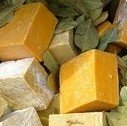Growing Vegetables Vertically
by Homayun
(Iran)
Hi. I have very small space for growing vegetables. I intend to use my court walls and grow my veggies on them vertically, but I don't know how much and what fertilizers are uses to growing them as fast as possible. Would you please help me?
Comments for Growing Vegetables Vertically
|
||
|
||
Did you find this page helpful?
Sharing is a way of saying, "Thanks!"
Follow Us and Keep Up to Date
Go back to the Home Page





